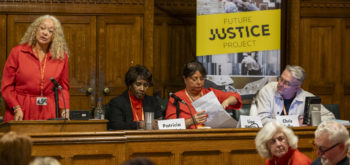A major reform of contempt of court laws may soon permit the release of broader personal data about people arrested in England and Wales. This would include the suspect’s name, age, nationality, ethnicity, religion, and immigration status.
This change comes from a new report by the Law Commission, published on 18 November, which says disclosing these personal details ‘will generally not create risk’ to a fair trial. It did, however, emphasise that any decision to publish these details must be dependent on each case.
The Commission have argued that greater transparency is necessary to prevent the void of reliable information being filled by speculation and misinformation in online forums. In its project to reform contempt laws, the Commission warns that current restrictions can inadvertently fuel dangerous narratives, especially in the age of social media.
This reformed focus on contempt liability follows the Southport attack in July 2024, where community tensions arose due to speculation about the suspect’s background. The Commission admitted that following this attack, contempt laws have ‘struggled to keep pace with the rise in social media’, changing the information framework.
Following the attacks, Merseyside police faced criticism for delaying the release of information about Axel Rudakubana’s background as a Black, British-born teenager. The delay led to widespread misinformation on the internet, leading to claims that the suspect was a 17-year-old asylum seeker who had entered the country by boat.
The Law Commission emphasises that public bodies should make ‘case-by-case’ assessments of risk to determine whether the information release is necessary. It deemed the guidance ‘operationally useful’ but that the ‘legal test for contempt cannot be reduced to fixed categories.’
Critically, under the Commission’s draft reforms, contempt liability would be treated as ‘active’ from the moment a suspect is charged, rather than at the time of arrest. From that moment, the test would be whether a published detail ‘creates a substantial risk’ that the course of justice might ‘be seriously impeded or prejudiced’. This shift is designed to give public authorities greater room to correct false public narratives.
This approach echoes interim guidance from the National Police Chiefs’ Council (NPCC) and the College of Policing, which already encourages forces to share ethnicity and nationality in some high-profile cases to pre-empt misinformation. According to Deputy Chief Constable Sam de Reya, authorities must ‘fill the information vacuum’ left by social media speculation with verified facts to be ‘the definitive source of this information’.
Critics warn that disclosing ethnicity or immigration status carries risks, including reinforcing racial stereotypes. The family of Bebe King, a Southport victim, condemns the proposal, claiming that ‘any ethnicity, nationality or race’ harbours the ability to commit a crime.
The Law Commission plans to release Part Two of the report in 2026, covering procedural and legal issues not addressed in the first instalment.






